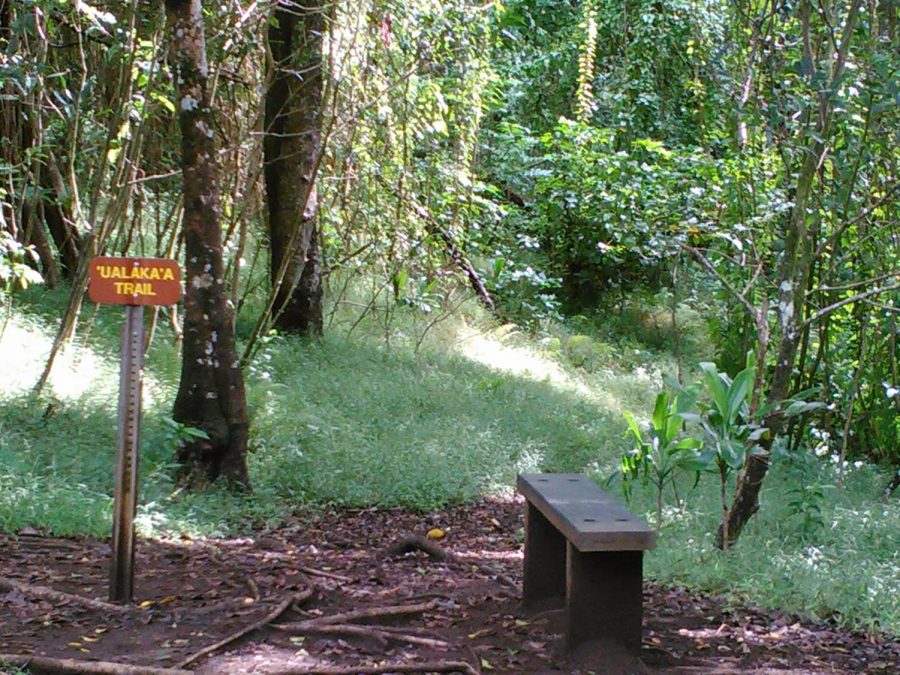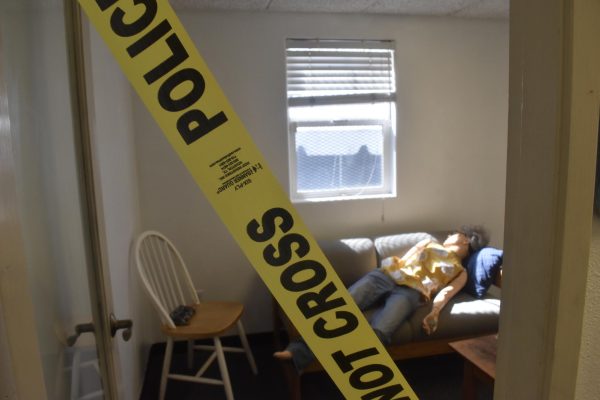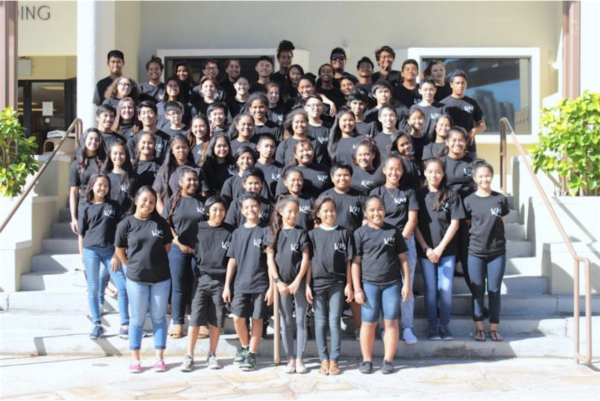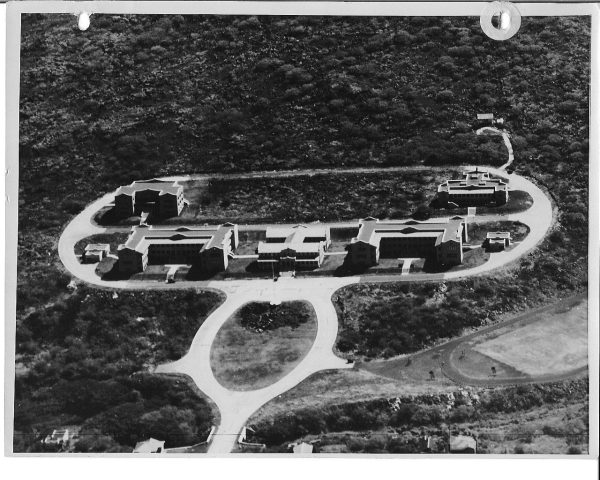Hawaii Opts to Not Charge Hikers For Rescues
The start of Ualaka’a trail.
Earlier this year, KITV4 reported that every search-and-rescue operation costs Hawaii taxpayers $1500 per hour. This came to light after two hikers had to be rescued after illegally trekking Haiku Stairs.
Most hikers never plan to get lost, injured or realize how quickly the environment can change enough to affect your hike drastically. Even if Hawaii doesn’t have big black bears or poisonous snakes, what it does have is strange weather. It may be sunny in the morning, but that could change into torrential downpours by late afternoon. Strong trade winds can also pick up enough to knock you down.
Dez Mello, a sophomore at Chaminade, said he loves going on hikes. The North Shore native tells that he hikes the Koko Head and Lanikai Pillbox trails often. Mello has witnessed an older woman being rescued at the top of Pillbox. The rocky mile hike became hard to maneuver down for the older woman after a short rainfall.
“She started having a panic attack,” Mello said. “After the rain the ground got muddy and she couldn’t get down.”
Mello said that the woman kept crying and called for help. Shortly after her call for help, a helicopter landed on one of the military observations pillbox structures and lifted her off the trail. Mello said he normally doesn’t like going on hikes when it is raining because being born and raised here he understands how slippery and dangerous a trail can get in the mountains.
According to a 2011 report by Hawaii News Now, a law is already in place allowing authorities to charge for a search-and-rescue if the person is found guilty of negligence. It also added that the Hawaii Fire Department is against charging for search and rescues out of the possibility that it would discourage people from calling for help when they should.
Hawaii charging for some or all repayment of search in rescue costs would only be following suit of other states. Outside magazine published an article in 2015 that said states like New Hampshire, Maine, Colorado, and Washington are willing to charge to offset the costs for search-and-rescue.
Retired Honolulu policeman David Alices Jr., who was with the HPD 29 and a half years, agrees with HFD in refusing to bill victims for search and rescues. He firmly believes that if a person needs help, then they should get help.
“It’s not a job where you’ll make a lot of money, but it’s your job,” said Alices, who has been a security guard at Chaminade for seven years. “The nature of your job is to save lives. You don’t charge people.”
In April 2017, KHON reported that while the trails are not necessarily difficult or dangerous, hikers who failed to prepare and underestimated the effects of hiking in Hawaii’s warm humid climate can end up in danger.
According to the article, the fire department advises hikers to follow simple steps to stay safe:
- Hike with a buddy
- Carry a cell phone, water, food and a flashlight
- Stay on the trail and keep an eye on the sky, staying aware of weather changes.
- Familiarize yourself with the area and bring the appropriate clothing and shoes for that trail.
- If you do end up in a situation where help is needed don’t wait, call for help.










